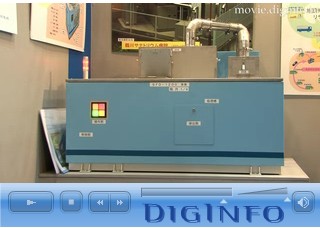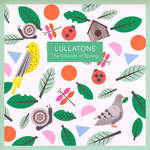
Treehugger links to what sounds like a non-story on DigInfo, a Japanese independent news video service. The headline: a Japanese company called Super Faiths has developed a technology for burning disposable diapers as fuel!
Before you get your kid's panties in a bunch, though, it's worth opening the lid and taking a whiff. The diaperfuel produces only a tiny amount of actual energy. Japan's diapers are usually constructed differently than the US [paper vs plastic/polymer], which limits global rollout potential.
If there is an actual advance here, it's actually in reducing the potential fossil fuel and emissions associated with incinerating diapers [Japan has long sorted and incinerated most of its trash. America, the Landfill Of The Free, usually just buries them.]
Anyway, I did about ten minutes of digging to see what the real story here is. Don't be surprised that executives from Japan's biggest diaper manufacturer are behind it:
Where to start:
There's an obvious Holy Grail aspect to the idea of turning one of parents' biggest sources of landfill waste into fuel. But the DigInfo report doesn't mention infant diapers at all. Instead it focuses on the growing problem of adult diaper disposal at nursing homes in rapidly aging Japan.
Fuel the way melting ice is a fuel
By reducing the diaper mass through what sounds like some chemical fermentation and evaporation, Super Faiths turns the diapers into something burnable but near-useless as a fuel. The reported energy content, 5,000 kcal/kg. If my math is right [ed note: and it isn't, so never mind, thanks, Scott. Here I am running numbers in my head, when there's a handy energy conversion calculator online. 5,000 kcal/kg = around 20 MJ/kg, roughly the same energy store as coal or wood, which is what paper is made out of int he first place.] that means it'd take about 1.5 million kg of diapers to produce 876 kWh, the energy required to power a 100-watt light bulb for a year. [If you've converted to compact flourescents, you can get that down to 400,000 kg diapers for a 100w equivalent. yeah!]
The cost of transporting such an inefficient energy store would obliterate the value of the energy it produces; the only real impact/savings comes when your trash company charges you by the pound to haul your stuff away. Reducing the weight of your diapers by 2/3 translates into less waste to burn and less waste to haul--and lower CO2 emissions.
Diapers in Japan: it's the little differences
I don't know anything about Japanese adult diapers, but there's a reason the report talks about "paper diapers," and it's not just a translation: most infant diapers in Japan are mostly paper. They use [mostly? only?] wood pulp or cotton, not the superabsorbent acrylate crystals in US diapers. Also, there are fewer plastic elements like liners and meshes and whatnot. I would bet that they burn much more cleanly [by design?] than US diapers. That said, the Super Faiths system seems to take garbage bags and all, so maybe it's the same thing.
The Japanese Diaper Industrial Complex
The inventor/spokesmodel of Super Faiths is a guy named Yukihiro Kimura. A guy with the same name just happens to be listed as an executive officer of the Unicharm Corporation [pdf link], which is the biggest domestic manufacturer of diapers in Japan [they make Moonies--and they invented Poo Pockets!]. Reducing disposal costs of their mainstay product in a growth segment seems like a totally valid business strategy.
But DigInfo touts Super Faiths' claim without a scintilla of context or disclosure. And meanwhile all but fictional headlines about turning diapers into fuel will fly around the world, making everyone feel good about that overflowing Diaper Genie.
Paper Diapers Used As Fuel [diginfo.tv via treehugger, thanks dt reader mark]
Previously: Poo Pockets & Photoshop - Looking Into Japanese Diapers




Better check your decimal places. Google says bituminous coal is about 6000 kcal/kg, and firewood is 3500ish, so this would look to be a pretty decent fuel actually.
I get 151kg to burn a 100W lightbulb for a year.
5000 kcal/kg = 20.9 MJ/kg
There are 31,556,926 seconds in a year. Joules = watts * seconds, so a 100W light bulb burned all year requires 3156 MJ. Dividing by 20.9 gives 151kg.
Edit: Of course, we are both ignoring the thermal efficiency of the process, which is probably down around 30-40%. So it would probably be more like 500kg net.
[d'oh, it's always the simple math. never mind. -ed.]
Also - if you're going to go to all the trouble of collecting dirty diapers wouldn't it be even better to just use cloth diapers???